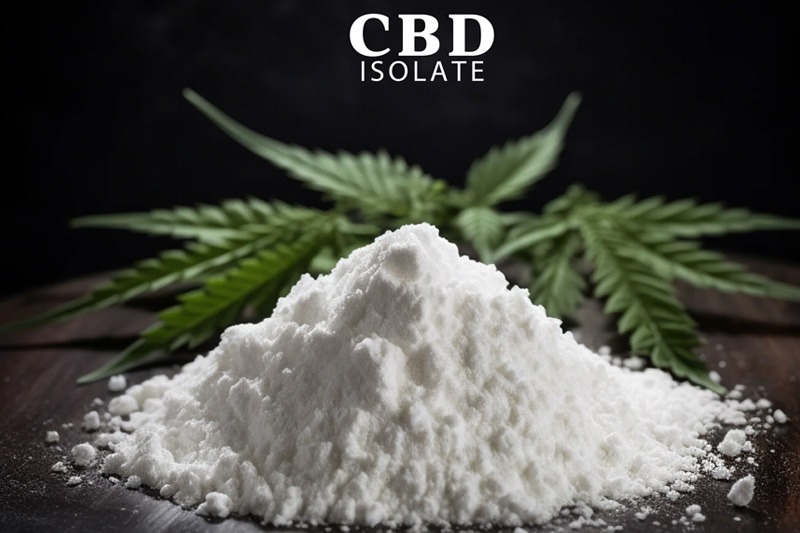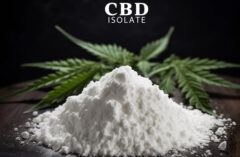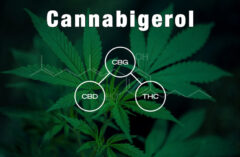Table of Contents
- 1 What Is this Cannabidiol known as CBD Isolate?
- 2 How Is CBD Isolate Made? The Extraction and Isolation Process
- 3 The Science of CBD Isolate: Chemical Composition of Cannabidiol and Effects on the Body
- 4 Potential Health Benefits of CBD Isolate – Cannabidiol
- 5 Is CBD Isolate Right for You? Things to Consider
- 6 Conclusion
Last Updated on April 16, 2024 by Team Spinfuel
 As questions swirl around cannabidiol CBD and its purported benefits, you find yourself wondering what’s fact and what’s fiction when it comes to CBD isolate. With so many claims being made, how can you separate the science from the hype?
As questions swirl around cannabidiol CBD and its purported benefits, you find yourself wondering what’s fact and what’s fiction when it comes to CBD isolate. With so many claims being made, how can you separate the science from the hype?
In this article, we’ll explore what the research says about CBD isolate, the difference between full-spectrum CBD and isolate, and whether the touted benefits have scientific validity. You’ll gain a deeper understanding of how CBD isolate is made, its chemical composition, and what impact that has on the body.
Arm yourself with knowledge from peer-reviewed studies so you can make informed decisions about using CBD isolate. Let’s dive into the science behind this popular cannabis extract.
What Is this Cannabidiol known as CBD Isolate?
CBD isolate is the purest form of cannabidiol (CBD), a chemical compound found in the cannabis plant. Unlike full-spectrum CBD products, CBD isolate does not contain any additional cannabinoids or terpenes. It is extracted and processed to remove all other components of the plant, leaving behind only crystalline CBD.
Purity and Potency
CBD isolate is considered the purest CBD product available, typically containing upwards of 99% CBD. Because it contains only CBD and no other cannabidiol, CBD isolate provides extremely high doses of CBD in each serving. This allows you to easily increase or decrease your CBD dosage as needed. The purity and potency of CBD isolate makes it an ideal ingredient for many CBD products.
Versatility
The crystalline powder form of CBD isolate provides a lot of versatility. It can be consumed on its own, added to foods and beverages, or incorporated into various CBD products like tinctures, vape oils, topicals, and capsules. CBD isolate has no taste or odor, so it will not change the flavor of the foods or drinks you add it to. It can also be dabbed or used to make your own DIY CBD products.
Drawbacks
While the purity of CBD isolate is appealing to some, it may not provide the full benefits of the cannabis plant. CBD works best when used in combination with other cannabinoids and terpenes, known as the entourage effect. By isolating CBD from other components, you may miss out on their potential synergistic benefits. CBD isolate also requires more processing to produce, which can reduce the overall sustainability.
In summary, CBD isolate offers high doses of pure CBD in a versatile powder form. However, it lacks other beneficial compounds found in full-spectrum CBD and requires intensive processing to produce, so it may not be the most sustainable or therapeutic option for everyone. By understanding both the benefits and drawbacks, you can determine if CBD isolate is right for you.
How Is CBD Isolate Made? The Extraction and Isolation Process
CBD isolate is extracted from hemp plants that are bred to be high in CBD and low in THC. The process begins with the harvesting of the hemp plants, which are then allowed to dry. The dried plants undergo an extraction process using a solvent such as ethanol or supercritical CO2 to separate the CBD and other cannabinoids from the plant matter.
Supercritical CO2 Extraction
This sophisticated method uses carbon dioxide in a supercritical state, meaning it has properties of both a liquid and a gas. Under extreme pressure and controlled temperature, the supercritical CO2 passes through the dried hemp plant matter and extracts the cannabinoids, including CBD. This solvent-free technique is very efficient and produces a highly concentrated CBD extract.
Solvent Extraction
Alternatively, a solvent like ethanol is used to soak the dried hemp plant matter and extract the cannabinoids. The solution is then heated to evaporate the solvent, leaving behind CBD oil. While effective, some of the solvent may remain in the final extract.
Isolating the CBD
To produce CBD isolate, the extracted CBD oil goes through additional processing to remove all other cannabinoids, terpenes, and plant compounds. This typically involves winterization, a process where the extract is dissolved in ethanol and then frozen. The fats and waxes separate and are removed through filtration. The remaining solution goes through several rounds of rotary evaporation to remove any remaining solvent. What remains is a powder or crystalline form of nearly pure CBD – the CBD isolate.
Through scientific methods, CBD isolate is carefully crafted to contain nothing but pure CBD, allowing for accurate measurement and controlled dosing. While lacking in other beneficial cannabis compounds, CBD isolate is an ideal option for those seeking to benefit from CBD alone.
The Science of CBD Isolate: Chemical Composition of Cannabidiol and Effects on the Body
Chemical Structure
CBD isolate is the purest form of cannabidiol (CBD), containing 99% CBD. The isolation process removes all other cannabinoids, terpenes, and plant materials found in hemp. What remains is a fine, white crystalline powder that is odorless and tasteless. The chemical formula for CBD is C21H30O2, with a molecular mass of 314.46 g/mol.
Interaction with the Endocannabinoid System
CBD interacts with the body’s endocannabinoid system (ECS), which helps regulate many functions including sleep, appetite, pain, and immune system response. The ECS produces endocannabinoids, neurotransmitters that bind to cannabinoid receptors in the nervous system. CBD does not bind directly to these receptors but instead impacts the ECS indirectly.
Potential Health Benefits of Cannabidiol
While more research is still needed, CBD isolate may provide certain benefits for health and wellness. CBD isolate may help reduce chronic pain and inflammation, improve sleep, and ease anxiety. CBD isolate is also non-psychoactive, meaning it does not produce a “high” or intoxication. The effects of CBD isolate tend to be felt within 15 to 45 minutes and last 4 to 6 hours.
The claims made about the benefits of CBD isolate are controversial and not fully substantiated by scientific research. While initial studies are promising, high-quality clinical trials in humans are still lacking. The FDA has approved only one CBD-based drug, used to treat rare forms of epilepsy. CBD isolate remains largely unregulated, and the purity and dosage can vary between products. You should talk to your doctor before using CBD isolate to determine if it is safe and appropriate for you based on your health conditions and any medications you may be taking.
Potential Health Benefits of CBD Isolate – Cannabidiol
CBD isolate may provide certain therapeutic effects for a range of medical conditions. However, further research is still required to substantiate many of the purported health benefits of CBD isolate.
Pain Relief
CBD isolate acts on receptors in the endocannabinoid system to help regulate pain perception and inflammation in the body. Early research shows CBD isolate may help reduce chronic pain from conditions like arthritis, multiple sclerosis, and fibromyalgia. CBD isolate could also alleviate acute pain from injuries like sprains or fractures.
Cannabidiol and Reduced Anxiety and Depression
CBD isolate may have anxiolytic and antidepressant effects. Studies indicate CBD isolate may impact receptors involved in managing stress and anxiety, such as GABA and serotonin receptors. For some people, CBD isolate may help alleviate symptoms of post-traumatic stress disorder, obsessive compulsive disorder, social anxiety disorder, and seasonal affective disorder. However, CBD isolate is not a substitute for prescription medication, and you should consult your doctor before using it for any mental health condition.
Improved Sleep
CBD isolate (cannabidiol) can induce a sense of calm and drowsiness, which may help those with insomnia or other sleep disorders. CBD isolate activates serotonin receptors, which can have a sedative effect when activated. Initial research suggests CBD isolate may increase total sleep time and reduce difficulties falling or staying asleep. However, dosage and timing appear to impact the sleep-promoting effects of CBD isolate. You may need to experiment to determine what works best for your situation.
In summary, while many people use CBD isolate for various therapeutic purposes, the research on its health benefits remains limited. CBD isolate appears relatively safe for most adults, but as with any supplement, there are potential side effects and risks to consider before using it to treat a medical condition or symptom. You should always talk to your doctor first before using any cannabis product for health and wellness.
Is CBD Isolate Right for You? Things to Consider
Purity and Potency
CBD isolate is 99% pure CBD, making it an attractive option if you want the highest concentration of CBD per serving. Since it contains no THC, CBD isolate also allows you to experience the benefits of CBD without the psychoactive effects or legal issues of THC. However, the potency of CBD isolate means you will likely need to experiment to find the right dosage for you. You may find you need a higher dose of CBD isolate compared to full-spectrum CBD oil.
The Entourage Effect
While CBD isolate contains only CBD, full-spectrum CBD products contain CBD along with other cannabinoids and cannabidiol in general, and terpenes found in the hemp plant. Known as the “entourage effect,” these compounds work together synergistically, and some research shows full-spectrum CBD may be more effective than CBD alone. If you want the maximum benefits of CBD, a full-spectrum product could be better.
Cannabidiol – Flavor and Texture
CBD isolate has no flavor and is odorless, colorless, and crystalline in form. While this can be an advantage for adding CBD to foods, drinks, and cosmetics, some people prefer the natural hempy flavor of full-spectrum CBD oil. CBD isolate also has an extremely fine, powdery texture that can be difficult to handle and measure accurately without specialized tools. Full-spectrum CBD oil has an oil base and dropper for easier dosing.
Cost Comparison
High-quality CBD isolate tends to cost slightly less per milligram of CBD compared to a full-spectrum CBD oil. However, you may need a higher dosage of cannabidiol, aka CBD isolate, to experience the same benefits. When comparing products, be sure to calculate the cost per milligram of CBD and determine which option fits your needs and budget. For some, a combination of CBD isolate, and full-spectrum CBD oil offers the best of both worlds.
In summary, CBD isolate and full-spectrum CBD oil each have their pros and cons. For purity and potency, CBD isolate is an excellent choice. However, full-spectrum CBD oil may provide greater benefits due to the entourage effect. Consider your priorities and needs to determine which type of CBD product is right for you. A combination of both isolate and full-spectrum oil could offer the maximum advantages.
Conclusion
As we have seen, all cannabidiol, especially CBD isolate is a unique compound that offers potential health benefits backed by scientific research. While more studies are still needed, current evidence points to CBD positively impacting several areas from anxiety to chronic pain when used appropriately. However, CBD is not a cure-all, and realistic expectations are important. By understanding the science behind CBD isolate, you can make informed decisions about whether trying this supplement may be right for you. Moving forward, stay up to date on new research and guidance from health authorities. An evidence-based approach will serve you best on your wellness journey. With an open yet critical mindset, you can determine if CBD isolate has a place in your life.
Nano-Powered CBD Oil: Exploring Its Astounding Future With Enhanced Formulations‘
8 Incredible Benefits of CBD to Improve Your Health and Well-Being
Are the Benefits of Full Spectrum CBD Miraculous or a Hoax?
CBD and THC – Why CBD Doesn’t Get You High – A 2023 Perspective
The Evolution of Wellness: Embracing CBD Vaping and Personalized Supplements








